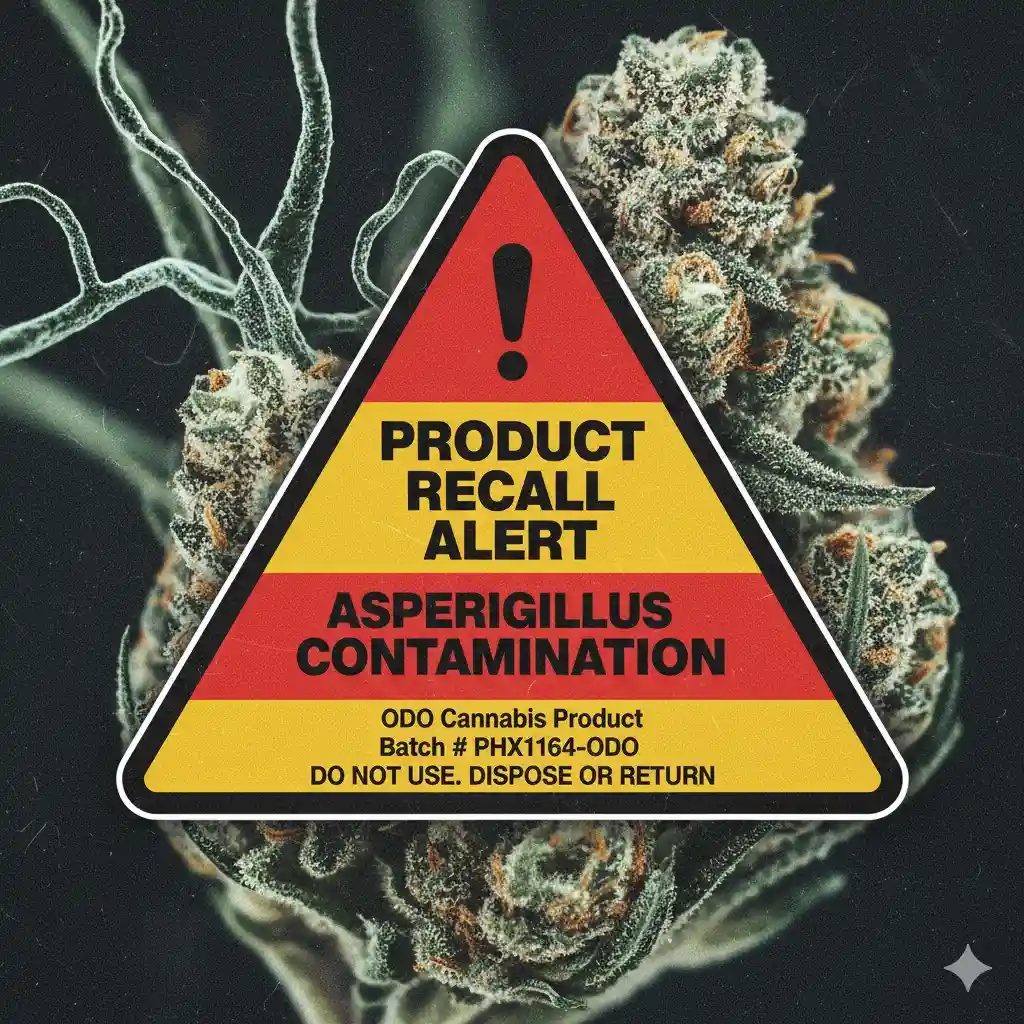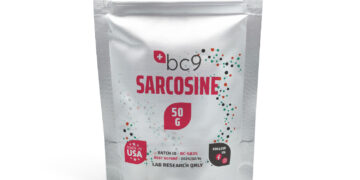Aspergillus ODO Recall Surprise in Your Bag
Aspergillus ODO Recall Arizona Imagine this. You buy something you trust. Safe, legal, medicinal. Then you hear it might carry a hidden risk. Not a chemical. A living organism. Fungus. That’s what happened with the ODO, batch PHX1164‑ODO in Arizona. People freaked. Maybe not everyone. But some. Aspergillus. Invisible spores. Can make people very sick.
Some think fungi are harmless. Most inhale spores daily. But inhaling from contaminated cannabis? Risk changes. Vulnerable people. Immunocompromised. Lung disease. Not joking. This story matters.

We cover what happened, why Aspergillus is dangerous, the science, regulations, and what you should do. Also what it means for the future of legal cannabis.
What Happened Aspergillus ODO Recall
Recall Details
May 2025. Arizona Department of Health Services announces recall. ODO batch PHX1164‑ODO. Cannabis flower. Contaminated with Aspergillus. No illnesses reported yet. Consumers warned. Stop using. Dispose.
Lab testing caught it. Not chemicals. Not THC levels. Fungal contamination. Invisible. Serious.
Product Lifecycle
Flower, not edibles. Sold by licensed dispensary. Tested post-harvest. Failed microbial test. Contamination confirmed. Recall issued.
This shows: testing for mold matters. Not just potency. Not just pesticides.
Why It Matters
Health risk. Regulatory signal. Consumer trust shaken. Legal market assumes safety. This breaks that assumption.
Past Recalls
Not first time. June 2023: recalls for Aspergillus and Salmonella. Oct 2023: trim batch recalled for Aspergillus. ODO recall fits pattern.
Aspergillus ODO Recall in Cannabis
Biology
Aspergillus lives in soil. Leaves. Air. Dust. We breathe spores daily. Usually harmless. In cannabis, spores survive drying and curing. Moisture, poor ventilation, decaying plant matter = mold growth.
Can cause:
- Allergic bronchopulmonary aspergillosis
- Chronic pulmonary aspergillosis
- Invasive aspergillosis
Vulnerable people at high risk.
Why Cannabis Is Vulnerable
Plant product. Exposed to soil, humidity. Harvest, trim, cure, store. Mistake anywhere → mold grows. Drying helps. Storage helps. Sometimes fails. Some labs miss contamination.
Risk Spectrum
Healthy adults = likely fine. Lung disease or immune suppressed = serious risk. Symptoms: cough, fever, chest pain, bloody sputum.
Expert Views & Regulations
Regulators
ADHS acted out of caution. Recall voluntary. Microbial standards exist. Even one failed test triggers action.
Industry Perspective
Operators see recall as red flag. QC systems reviewed. Mistakes happen. Humans make errors.
Medical & Mycology Expert Notes
Cannabis is a produced product. Must meet microbial standards. Drying/curing alone doesn’t kill all spores. Proper lab testing is key.
ODO Batch PHX1164‑ODO Case Study
Step‑by‑Step
- Licensed operation produces ODO batch.
- Lab tests fail. Aspergillus detected.
- ADHS notified. Recall issued.
- Retailers notified. Consumers told to dispose.
- No reported illnesses. Monitoring continues.
Stakeholder Impacts
Consumer: stop use. Some fine. Some vulnerable. Risk serious.
Producer: product loss, reputation damage, internal review.
Regulator: system worked. Recall issued. Oversight continues.
Industry: fungal contamination is a real issue.
Why Recall Matters
Not just one batch. Shows microbial issues slip. Fungi less visible than chemicals. Must pay attention.
Contamination Comparison Table
| Contaminant | Source | Health Impact | Consumer Note |
|---|---|---|---|
| Aspergillus | Soil, plant, moisture | Allergic, invasive in vulnerable | Inspect flower, check lab report |
| Salmonella/E.coli | Poor hygiene | Gastrointestinal | Especially edibles |
| Heavy metals | Soil uptake | Neurological | Check COA |
| Pesticides | Excess/unapproved | Long-term health | Check permitted lists |
| Residual solvents | Extracts | Respiratory, neurological | COA needed |
What You Should Do
Consumers:
- Check batch numbers.
- Review lab COA.
- Inspect flower for mold, moisture.
- Store dry, cool, sealed.
- Vulnerable? Avoid inhalation.
- Used recalled batch? Dispose. Seek medical advice if unwell.
Producers:
- Audit QC.
- Recall protocols.
- Staff training.
- Transparency.
Regulators:
- Random microbial testing.
- Clear public guidance.
- Recall notices accessible.
Future Implications
Cannabis industry maturing. Safety focus increasing. Microbial testing critical. Consumers want transparency. Operators must adapt. Patients rely on safety.
Public health risk. Aspergillus inhalation grows concern. Tech and process improvements needed. Advanced drying. Faster lab testing. Supply chain tracking. Consumer education vital.
Limitations & Nuances
Not all recalled batches harmful. Lab tests imperfect. Risk varies. Cannabis regulation fragmented. Aspergillus one of many risks.
Conclusion
Recall shows legal doesn’t mean perfect. Hidden risks matter. Consumers must stay alert. Producers must prioritize safety. Regulators must enforce and communicate. Trust depends on it.
FAQs
- What is the ODO recall? Cannabis flower, batch PHX1164‑ODO, contaminated with Aspergillus.
- Who is at risk? Vulnerable people: immune suppressed, lung disease. Healthy adults low risk.
- Any illnesses reported? None reported.
- How to check safety? Batch numbers, COA, inspect flower, proper storage.
- Arizona microbial regulations? Table 3.1 in 9 A.A.C. 17 & 18 sets standards.
- Prevent contamination? Impossible to eliminate, reduce with good drying, storage, testing.
- Does smoking kill spores? May reduce viability. Still risky for sensitive users.
- Used recalled batch? Stop use. Seek medical advice if symptoms.
- How often do recalls happen? Several each year. Aspergillus, Salmonella, metals, pesticides.
- Future of regulation? Stricter testing, transparency, batch tracking.
- Should healthy users avoid flower? Not necessarily. Buy tested, regulated sources.
- How to restore trust? Transparency, recalls, lab results, educate consumers.



















